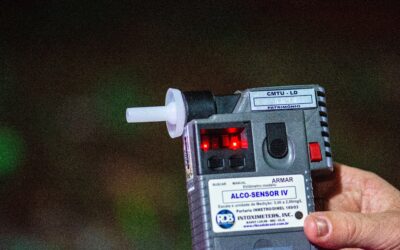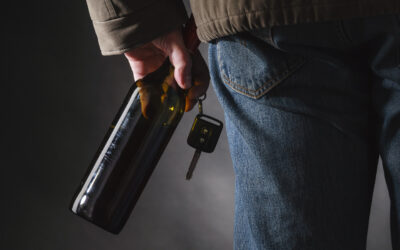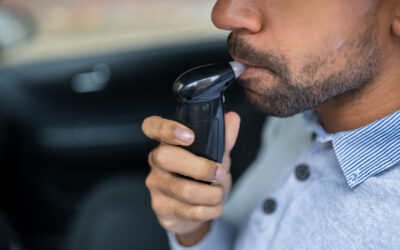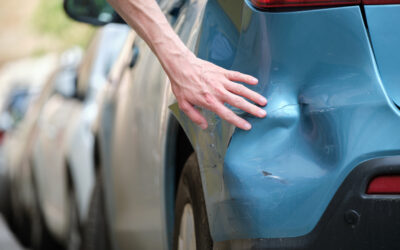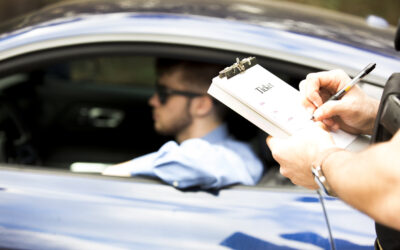If you are facing your second DWI charge in the last ten years, you’re up against a more serious charge this time around. One possible aggravating factor in Minnesota is having one or more previous DWI convictions in the last decade, which means the severity of your charges will automatically be increased. Minnesota’s impaired driving penalties can be quite severe, so when you’re facing a second offense DWI in Minnesota, it pays to work with an experienced DWI lawyer.
Free Case Evaluation
Minnesota Second Offense DWI Laws
Minnesota levels of DWI charges are largely based on how many (if any) previous DWI convictions a defendant has. They range from fourth degree to first degree DWI, with the former being a standard first-time DWI charge.
If you have previously been convicted of DWI, you may have a good grasp on the factors the prosecution must prove to obtain a conviction. If it’s been a while since your last conviction, it’s best to brush up on the definition of driving while impaired: driving, operating, or being in physical control of a motor vehicle while:
- Under the influence of alcohol or drugs
- Having a BAC (blood alcohol concentration) of at least .08%
- Knowingly being under the influence of a hazardous substance that can significantly impair driving abilities
- Having any amount of a Schedule I or II drug in the body (with the exception of marijuana)
Minnesota’s DWI laws are constructed to make subsequent DWIs within a ten year period more serious than the original charge. The second time you are charged with DWI in Minnesota, you will be faced with a gross misdemeanor.
Minnesota Second Offense DWI Penalty
The penalties for DWI are twofold: first, there are the criminal penalties. These penalties, such as fines and jail time, are implemented once the defendant is convicted, although you may still spend time in jail before your bail is set. The maximum penalty for a second DWI is one year of jail time and a fine of $3,000.00.
There are also administrative sanctions that will affect you as soon as you are arrested. These penalties are administered by the Minnesota Department of Public Safety. For a second DWI charge in ten years, the administrative penalties include plate impoundment and driver’s license revocation for at least a year. Plate impoundment refers to what are commonly called “whiskey plates” in Minnesota. The defendant must surrender the license plates of all vehicles in their name (even if they are driven by another family member). If they would like to drive these vehicles again, they must apply for whiskey plates. This is incredibly inconvenient for the entire family, and it can be embarrassing to have whiskey plates on your vehicles – especially if your spouse or child is the primary driver. Fortunately, recent law changes make it possible for us to avoid whiskey plates for our clients in many cases.
DWI-DUI Lawyers in Minnesota
Clearly, it’s incredibly important to take your DWI charge seriously to avoid significant penalties. If you’re facing a second DWI charge in ten years, you will need the timely advice of an experienced DWI defense attorney. As soon as you or a loved one has been arrested for DWI, contact Sieben Edmunds Miller. Our criminal defense attorneys have dedicated their practice to representing and protecting the rights of the accused. We have the legal experience needed to craft a successful defense while ensuring that your rights are protected. Call our office at (651) 994-6744 or submit your information and we’ll be in touch shortly.
Get a Free Case Evaluation
We are here to help. Let us evaluate your case for you. Free of charge – no obligation. Complete our free case evaluation form or call us directly at (651) 323-2464.
Recent Blog Posts
Challenging the Results: How a Criminal Defense Attorney Can Fight a DWI Charge Based on Faulty Field Sobriety Tests
A DWI arrest in Minnesota can be a frightening and disorienting experience. Often, the prosecution's case hinges heavily on the results of field sobriety tests (FSTs). However, these tests are not infallible, and a skilled criminal defense attorney can challenge their...
What to Expect During a Minnesota DWI Trial
A DWI trial is not something to take lightly. The prosecution will present evidence, including chemical test results, field sobriety test performance, and officer testimony, in an attempt to prove your guilt beyond a reasonable doubt. However, just because you have...
How Aggravating Factors Can Impact Your DWI Case
Driving while intoxicated is a serious offense in Minnesota, but not all DWI charges are treated equally. Some cases are more severe than others due to specific circumstances that make the offense more dangerous. These circumstances, known as aggravating factors in a...
Top 5 Myths About DWI Charges in Minnesota Debunked
Driving while intoxicated (DWI) is a serious charge in Minnesota, with potentially life-altering consequences. However, there are numerous misconceptions surrounding DWI charges that can lead to misunderstandings about your rights and the legal process. If you’ve been...
What Are the Criminal Consequences of Leaving the Scene of an Accident in Minnesota?
Leaving the scene of an accident, commonly referred to as a hit and run, is a serious criminal offense in Minnesota. Whether the accident involves property damage, injury, or death, drivers are legally obligated to stop and provide their information. Failing to do so...
What to Do if You Are Pulled Over for a Suspected DWI in Minnesota
Getting pulled over for a suspected DWI (Driving While Intoxicated) in Minnesota is a nerve-wracking experience, but how you respond during the traffic stop can significantly impact the outcome of your case. It's important to know your rights and understand the steps...
Free Case Evaluation
Contact Info
Note: The use of the Internet or this form for communication with the firm or any individual member of the firm does not establish an attorney-client relationship. Confidential or time-sensitive information should not be sent through this form.
